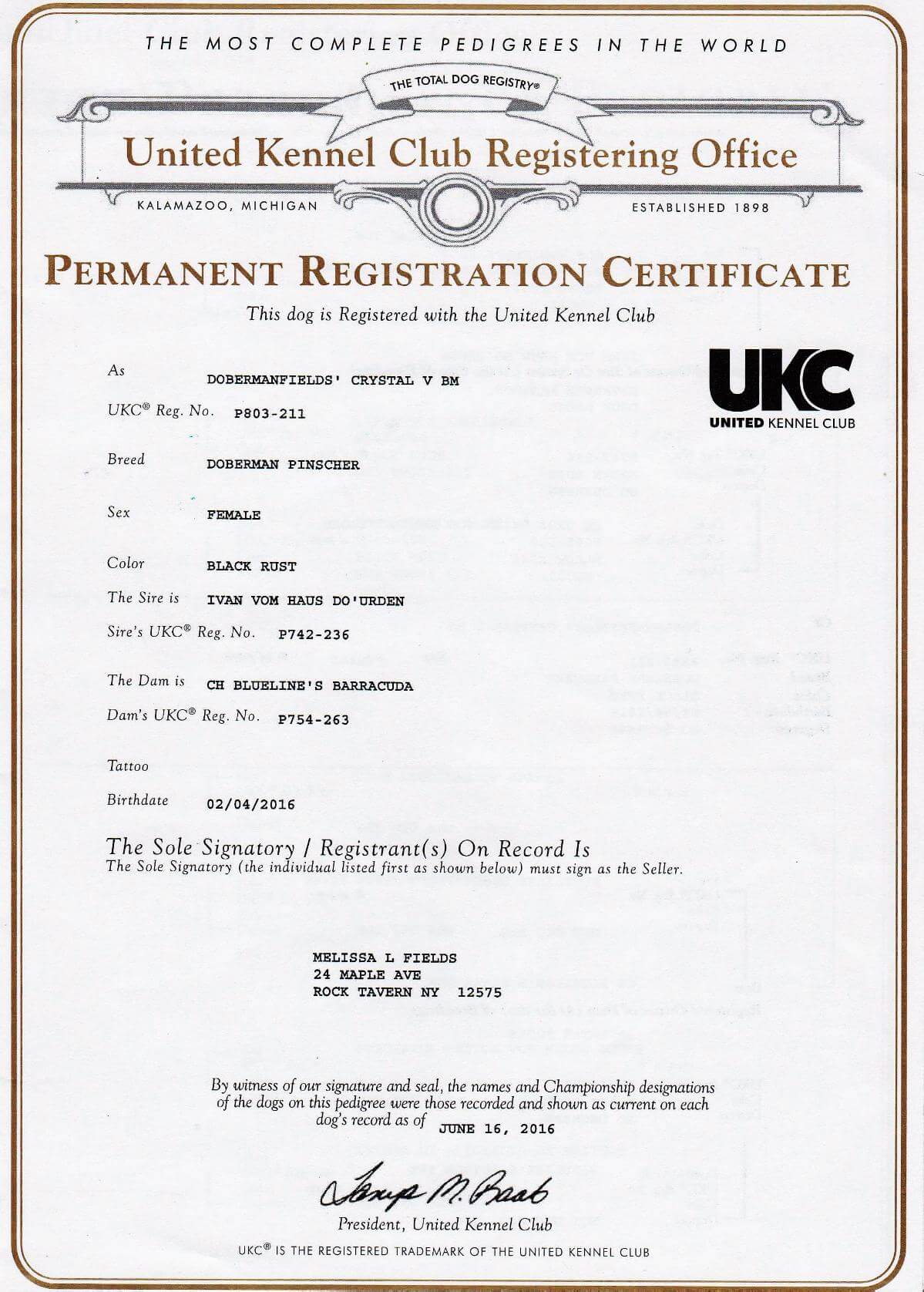Registering your dog has many benefits. For one, it helps to ensure that your dog is up-to-date on vaccinations. This is important not only for your pet’s health but also for the safety of other dogs and people.
In addition, registering your dog makes it easier to be reunited if he or she ever gets lost.
Lots of dogs get separated from their owners and never get found – something that could have been easily solved by having a registration certificate.
Dog registration also helps to prevent excessive breeding, inbreeding, and other unscrupulous breeding practices. This helps relieve the pressure from animal shelters as well as helps deal with the stray dog problem.
So, not only is registering your dog good for your pet, but it’s also good for the community.
Litter registration is usually done with breeders before the puppies are sold to their new owners.
Buying a registered puppy will make it easier for you to apply for registration papers with other reputable registries.
But what are the options for pet parents who want to register their dog without papers?
Well, there are several avenues that you can use to get registered with the UKC: permanent registration, single registration, and performance listing.
Permanent Registration
If your dog does not have papers but was from a registered litter, then you can use the permanent registration option.
The permanent registration process is pretty simple. Just fill out the application and submit it to the UKC.
You will need to include information about the dog’s litter, as well as your personal information.
Once the registration is complete, you will be sent a certificate of permanent registration.
For your dog to qualify for permanent registration, it will need to be from a registered litter and the application form will need to be completed properly.
Permanent registration will cost anything from $24 -$85 depending on factors like age and pedigree.
A dog that has permanent registration will enjoy all the benefits of registered dogs which includes the provision for ownership transfer.
For ownership transfer to be recognized, the seller will be required to sign the certificate of transfer.
If the dog was registered by two partners, both of them will need to sign the certificate of transfer.
The new owners will also be required to provide their details in the provided sections.
After a dog has been permanently registered with the UKC, its name cannot be changed.
However, new owners are allowed to provide an application for a name change when filling out the transfer papers.
UKC may still deny an application for name transfer e.g. if they deem the name suggested to be derogatory to gender, religion, race, nationality, or disability.
Further Reading: How to Register a Dog for the First Time (in the US)
Single Registration
The single registration avenue is meant for purebreds as well as dog breeds that are already registered with other reputable registries like AKC. The dog must also be of a breed that is recognized by the UKC.
Single registration is done online on the UKC website and the requirements for the registration are breed specific.
But for the most part, you will be required to pay a one-time registration fee and then fill out the single registration form.
You will also be asked for more details of the dog e.g. photocopied or hand-written pedigree.
Once you have filled the form that is provided as a PDF, you can send it back via mail with the other supporting documents or fax it to the UKC.
The application will then be reviewed and if you have met all the requirements, a registration certificate will be issued.
Learn more here: How to Fill Out UKC Registration Papers
Performance Listing
If your dog does not meet the stringent UKC requirements, you can still get him registered via the performance listing route.
A dog that has a performance listing certificate will be eligible to participate in UKC events like Precision Coursing, rapidly growing nose work, duck jumping, and any other upcoming UKC licensed events.
The performance listing route is the best option for mixed breeds, purebreds whose pedigree is unknown, purebreds that have something that disqualifies them from UKC permanent registration, and any breed that is not recognized by the UKC.
Performance listing dogs will not receive UKC breeding rights but they will be allowed to participate in UKC events and earn titles and points.
All their competition history will be recorded and maintained by the UKC.
What to Do If Your Dog’s Papers Get Lost

Losing your dog’s registration certificate can be frustrating, but luckily UKC makes it easy to replace.
As long as you are the Registrant or Sole Signatory on the dog’s account, you can simply fill out the UKC Application for Duplicate Registration and submit it along with the required fee.
You can download the form on the UKC website.
If your dog happens to be stolen, you may want to seek legal assistance to determine how to pursue your rights in court. That’s because dog ownership is a civil matter.
Related Post: How to Prove Ownership of a Dog
Is it Ok to laminate the certificate?
Lamination is a great way of protecting documents. However, you may want to avoid laminating your dog’s papers.
According to the UKC, lamination of papers is not recommended because it makes it impossible for the current owner to provide the new owner with a place to sign during an ownership transfer.
The transfer can still happen even if you have laminated the certificate but it will be more tedious for all parties.
Can I Update My Names After Divorce/Marriage?

The UKC allows for updating of names after a divorce or marriage.
For this to happen, you will be required to provide legal documentation to prove your change in marital status.
A signed statement must be given as proof of name change before the UKC honors the name change request.
The statement will also need to be accompanied by a copy of the divorce/marriage certificate.
Related Post: How to Get Your Dog Back From An Ex
Can you UKC register your dog with DNA?
If there are no papers, you can submit your dog for DNA profiling by the UKC.
The DNA will help to prove the ancestry and breed information of your dog.
However, DNA profiling will not help you to get your dog registered with the UKC.
For registration, you will have to use the permanent, single, or performance listing registration options depending on what requirements your dog meets.
Learn more here: Can You Register A Dog With DNA Test?
Closing Thoughts
In summary, you can register a dog without papers with the UKC as long as the dog meets the breeding standards.
However, the type of registration will depend on a variety of factors.
For starters, if your dog lacks papers but is from a registered litter, you can easily have them permanently registered. The same is true for purebreds that haven’t been registered as yet.
That said, the dog will still need to meet some basic requirements – e.g. they have to be from a breed that is recognized by the UKC.
If your dog has already been registered but the papers got lost, you don’t have to apply for new registration.
Just get in touch with the UKC and new papers will be provided after you have provided the required documentation.
But if your dog doesn’t meet the required criteria for registration, you can still use the performance listing registration which will give your dog a UKC certificate.
Granted, it is not a full registration but it will allow your dog to participate in UKC events and ear points.
As an Amazon Associate, we may receive a small commission from qualifying purchases but at no extra cost to you. Learn more. Amazon and the Amazon logo are trademarks of Amazon.com, Inc, or its affiliates.

